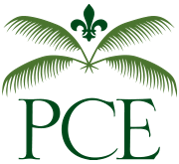- Home
- FINANCIAL SOLUTIONS
- Valuation
- Portfolio Valuation

Unlock the power of independent valuations
Looking for independent and transparent valuations across your entire portfolio? PCE is here to help. Portfolio valuation requires an in-depth understanding of the asset, the market, the company, and the competition. Our specialist team has the world-class experience you need, along with deep knowledge of the latest accounting guidance.
Portfolio valuations face increased analysis from aggressive regulators, auditors, and investors. We guarantee a transparent and well-documented, defensible valuation that stands up to even the most sophisticated scrutiny.

Reduce conflict and mitigate risk
Need to meet stakeholder requirements? Mitigate risk? Reduce conflicts of interest? PCE valuation specialists will meet these needs and more. We are experts in navigating the complexities of valuation requirements for alternative investments, including illiquid equity and debt securities, derivatives, and other hard-to-value securities. You’ll get audit-ready valuations that deliver.
Our professionals have a wealth of experience across different markets and industries. You can be sure we’ll speak your language.
Portfolio Valuation Services
- Senior and Subordinated Debt
- Convertible Debt
- Preferred and Common Equity
- Warrants and Options
- Hybrid Securities
- Private Equity Fund General Partner Stakes
Resource
What is Your Post-Money Valuation? And Is It Correct?
Portfolio Valuation Foundations
Understanding Portfolio Valuations: The Backbone of Smart Investing and Risk Management
Advanced Applications & Real-world Execution
Carried Interest Appraisals: A Guide to Valuation Methods & Allocations
Take the next step
Complete the form below, and we’ll contact you to discuss your business goals and aspirations.
Resource Center
Explore our archive of market-leading information and intelligence.



